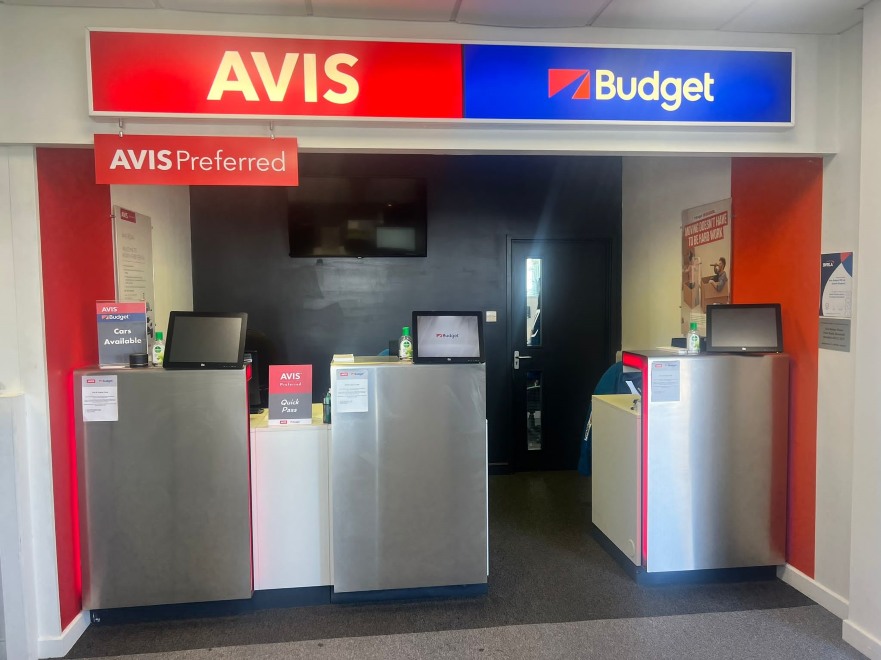Good News To Picking Car Rental Sites
Good News To Picking Car Rental Sites
Blog Article
How Do You Review The Insurance Coverage Provided By The Rental Company While Renting A Vehicle?
To avoid unnecessary costs and be properly protected, it is essential to review the options for coverage and insurance that your rental company offers. Learn how to efficiently examine insurance coverage prior to renting a car. Understand Basic Coverage. Most rental companies provide basic liability insurance. It covers bodily injury and property damage caused to third parties if you're responsible for an accident. The coverage may be capped with deductibles or limitations.
Evaluate Additional Coverage Options: In addition to basic insurance, rental companies provide diverse insurance packages that can provide additional protection. Additional coverage is Collision Damage Waiver, which eliminates or reduces your financial liability for damage to the rental vehicle. Loss Damage Waiver covers damage or theft to the car.
Review the coverage limits and Deductibles. Check each insurance policy's coverage limits and deductibles. Find out the maximum the insurance will cover for damage or loss, in addition to the amount you have to pay (deductible), before the coverage starts.
Personal Insurance: Find out if the personal auto policy or credit card offers coverage for renting cars. Certain credit cards will provide insurance coverage for rental vehicles if you pay for the rental with the card. In the same way, your auto insurance policy might extend coverage to rentals, though it depends on the terms of your policy.
Review Your Tolerance to Risk If you're contemplating purchasing additional insurance, consider your financial and risk-taking capacity. The purchase of additional insurance can be beneficial when you are concerned about loss or damage to the rental vehicle and wish to have peace of mind. If you're covered elsewhere, you can choose to skip the insurance provided by the rental company to reduce costs.
Ask about Exclusions & Exclusions: Ask the rental agency if there are any restrictions or exclusions from the insurance coverage. For instance that if the vehicle is used for commercial purposes or for business purposes, it could be exempt from insurance. Be sure to fully comprehend the conditions and terms of the insurance coverage to keep from being surprised in the event in the event of an accident.
Document Damages that Exist: Prior to signing the rental agreement examine it thoroughly for any damage that is present or indications of wear and tear. Document any damage, including scratches, dents, or other damages and note it on the rental contract. You'll be safe from being held accountable for damages that were already in place when you returned the car.
If you carefully review the insurance policies and options offered by the rental company, you can make informed choices to make sure you have appropriate protection during the rental period, while also reducing unnecessary costs. Check out the top Rent Cars Around the World url for blog info including exotix car rental, near me rent a car, place to rent a car near me, rent a car in europe, exocit car rental, car hire car hire, day by day car rental, rent my car out, car rental near me now, drive rent a car and more.
How Do You Inspect The Vehicle For Any Existing Indications Of Wear And Tear?
You should inspect the vehicle for indications of wear or damage before you purchase it. This is to avoid being held responsible for problems that were already present. Follow these steps to conduct thorough inspections: External Inspection:
Check the exterior of your car for any scratches, dents or scratches or.
Make sure you pay particular attention to any parts susceptible to being damaged like doors and bumpers.
Examine for cracks or chips on the windshield.
Examine the underside of the vehicle to determine if there are any leaks or damage.
Interior Inspection
Check the interior by opening the doors and the trunk.
Examine the carpets, seats and upholstery for stains tears or excessive wear.
Check that the adjustments for all seats, not just that for the driver, are in good working order.
Check the steering column, dashboard, and controls to see the presence of any damages or issues.
Verify the health of the air conditioning, heating and ventilation systems.
Test the audio, lights, signals and other electronic devices.
Functional Inspection
Start the car and check for warning light or error messages on the dashboard.
Test the brakes (if appropriate) or accelerator as well as clutch to make sure that they work correctly.
Make sure that the brake lights, turn signals, high beams and headlights are all working properly by turning them on.
Check the fluid in the wiper and horn, as well as the parking brake.
Do not fail to document any damage.
If you encounter any problems or damages, document them using the rental agreement, or the smartphone app.
Make videos or photos of your vehicle from different angles. Be aware of any places that are showing signs of wear or damage.
Be sure to note the dimensions, location, and extent of each scratch, mark, or other scratch on the rental agreement form.
It is important to inform the representative from the rental company of any damage prior to taking the vehicle.
Report Damage
Inform the agent at the rental agency of any damage you might have found during the inspection.
Please ask that they document any damage to their records. Also ask for a copy of the inspection report.
The representative and you as well as the representative of the rental company must sign the rental agreement or the inspection report to confirm any damages.
If you adhere to these steps and make sure you thoroughly inspect the rental car before accepting it for any wear and tear, damage or other signs that you are not protected and have a better rental experience.
What Do You Need To Think About In Relation To The Conditions And Terms For Returning Your Rental Car?
To ensure a hassle-free and smooth return, it's essential to think about a number of factors when reviewing the terms for returning the car. Be aware of the following: Specified Drop Off Location: Confirm that the drop-off location is specified in the rental contract. You must return the car at the agreed-upon location. Some rental companies offer several drop-off points like airport terminals or rental offices so it's essential to confirm the exact location.
Acceptable Return Times: Verify the time frame for return agreed upon. Rental companies usually specify a return date and time. Make sure you return the car by the deadline specified in order to avoid any penalty or fees for late return.
Late Return Penalties: Read the rental policy of the company regarding late return and any penalties associated with them. Returning a car later than the agreed time may cause additional fees, late charges, and other penalties. Rental companies can add a day's charge for each day or portion of a day when the vehicle is not returned on time.
Ask about your options for an extension. Certain rental companies allow you to extend the rental period. It is contingent on availability and could incur additional costs. To request an extension in advance, contact the rental company.
Return Condition Requirements - Familiarize yourself with the requirements for returning a rental car in good working order. The majority of rental agreements require that the car must be returned in the exact state as the time it was rented with reasonable wear and tear expected. Make note of any directions to remove or wash the vehicle prior to returning it.
Inspection of Vehicle at Return Final Inspection of the vehicle prior to returning it to your rental company. Examine for any damage or problems that may be present while you were renting the vehicle. Document any new damage or concerns and bring them to the attention of the rental company's representatives.
Return Process: Learn the process of returning and follow any paperwork or procedures required when returning the rental vehicle. Follow the directions provided by the rental agent to return keys, including completing paperwork and receiving a final confirmation or receipt.
Take note of these aspects when returning the vehicle and read the terms of the rental agreement to make sure you are meeting the terms of the rental agreement. This will allow you to avoid any penalties or issues.